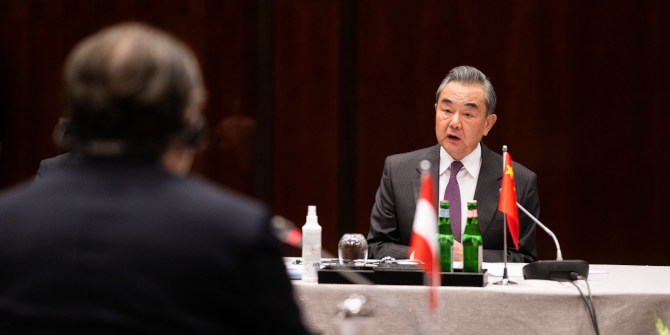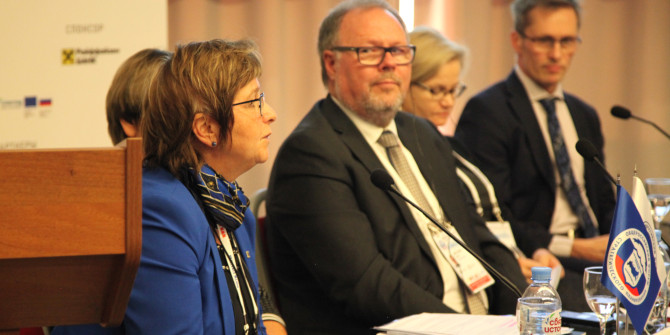In 2019, the European Commission unveiled a European Green Deal to aid Europe’s transition to climate neutrality. Serena Sandri, Hussam Hussein, Nooh Alshyab and Jacek Sagatowski examine how this strategy could impact on countries in the EU’s southern neighbourhood.
The European Green Deal, introduced by the European Commission in 2019, encompasses a comprehensive and ambitious set of policies aimed at tackling climate change, promoting sustainable development and transitioning to a low-carbon economy. It spans key areas including climate action, biodiversity, sustainable food systems, energy efficiency and a circular economy, among others.
While initially conceived of as a European growth strategy, the Green Deal also has significant implications for foreign policy, particularly in relation to the European Neighbourhood Policy countries in the southern region, which includes Algeria, Egypt, Israel, Jordan, Lebanon, Libya, Morocco, Palestine, Syria and Tunisia. Understanding the implications of the European Green Deal for these countries, notably in relation to energy, trade in raw materials, agriculture, food systems and climate action, could help support a smooth green transition.
Energy
In the realm of energy, the EU’s commitment to renewable energy sources and energy efficiency stands out. As such, the European Green Deal’s influence on energy demand and trade patterns will be significant. As the EU aims to reduce its reliance on fossil fuels, opportunities will arise for southern neighbourhood countries, particularly those rich in renewable resources.
Solar energy production potential in the region is noteworthy due to its location in the sun belt. Additionally, countries like Algeria, Egypt and Israel hold promise as suppliers of natural gas, which is envisioned as a transition fuel, and potentially green hydrogen. The European Green Deal’s emphasis on clean energy also presents a potential avenue for economic growth and energy security for these countries.
Trade in raw materials
Trade dynamics play a crucial role in the region’s engagement with the European Green Deal. The reduction of fossil fuel demand in the EU may impact on oil and gas exporters like Libya and Algeria. However, the transition to renewables and green technology might also create new opportunities for these countries, enabling them to participate in the emerging markets for renewable energy sources and technologies.
The push for carbon neutrality necessitates the importing of essential raw materials for green technology, possibly leading to increased demand for minerals and metals. While current trade in raw materials between the EU and the southern neighbourhood countries is relatively small, this dynamic may change with the growing global demand for critical raw materials.
Agriculture and food systems
Agriculture and food systems are another area of interest. The European Green Deal’s Farm to Fork strategy aims to promote sustainable food production and reduce waste. This presents opportunities for southern neighbourhood countries to adopt organic farming practices, which could open doors to the EU market.
Tunisia and Morocco have already made strides in this direction. While challenges exist, such as meeting EU standards and potential short-term price increases, the strategy could lead to rural economic growth and job creation, particularly in sustainable agriculture sectors.
Climate action
Climate action and circular economy initiatives form another focal point. The European Green Deal’s climate goals align with the vulnerability of southern neighbourhood countries to climate change. The region’s engagement in sustainable growth, climate governance, and circular economy practices could mitigate the negative effects of climate change, enhance food security and reduce vulnerability.
The EU’s efforts to promote waste reduction and circular economy principles offer economic opportunities in recycling industries. However, the transition to circular economy models might also pose challenges in terms of meeting EU standards and regulations.
Political implications
It is evident that the European Green Deal has the potential to bring economic, environmental and social benefits to the southern neighbourhood countries. Opportunities for economic growth, job creation and increased regional cooperation are on the horizon.
Nonetheless, it is crucial to consider the political implications of the green transition. The European Green Deal’s impact on rentier economies and traditional power structures could lead to both positive and negative political consequences. The EU’s role in supporting sustainable practices, fostering regional collaboration and engaging in diplomatic efforts will be pivotal for navigating these complexities.
The road ahead
The European Green Deal presents a complex yet transformative opportunity for the southern neighbourhood countries. The shift towards renewable energy, sustainable agriculture, a circular economy and climate action can bring about positive economic and environmental changes. However, careful consideration of potential challenges, such as meeting EU standards, managing trade dynamics and addressing political implications will be essential.
The interplay between economic growth, sustainability goals and political stability requires strategic planning, cooperation and proactive engagement between the EU and its southern neighbours. As these countries seek to reap the benefits of the green transition, a delicate balance between opportunities and challenges must be struck to ensure a successful and inclusive implementation of the European Green Deal in the region.
For more information, see the authors’ accompanying paper in Mediterranean Politics
Note: This article gives the views of the authors, not the position of EUROPP – European Politics and Policy or the London School of Economics. Featured image credit: Leonid Andronov/Shutterstock.com





